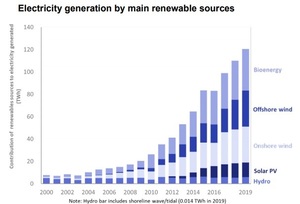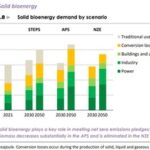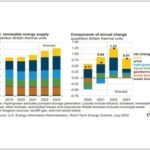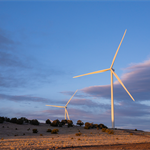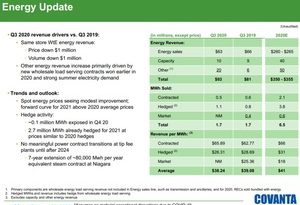UK bioenergy electricity production increased 6.8% in 2019
Energy Disrupter
- <img src="http://biomassmagazine.com/uploads/posts/web/2020/08/resize/UKEnergyStatsJuly2020_15977033554221-300×300-noup.jpg" title="SOURCE: .K. Department for Business, Energy and Industrial Strategy
</small>”> - <img src="http://biomassmagazine.com/uploads/posts/web/2020/08/resize/UKEnergyStatsJuly20202_15977034188539-300×300-noup.jpg" title="SOURCE: .K. Department for Business, Energy and Industrial Strategy
</small>”>
ADVERTISEMENT
The U.K. Department for Business, Energy and Industrial Strategy has released updated energy statistics that show renewable resources announced for 12.3 percent of the nation’s total energy consumption in 2019, up from 11.2 percent in 2018.
Electricity generated from renewable sources in the U.K. reached a record 37.1 percent last year, up from 33.1 percent in 2018. The increase reflected a 6.5 percent rise in renewable generation capacity to 47.2 gigawatts (GW). U.K. electricity generation from bioenergy increased by 6.8 percent last year and accounted for 16.6 percent of renewable production capacity and 31 percent of total renewable generation.
Despite reduced nuclear output, the BEIS said low-carbon electricity’s share of generation increased from 52.6 percent to a record 54.4 percent, driven by the increase in renewables generation.
Provisional BEIS estimates show that overall emissions fell by an estimated 3.9 percent, or 14.2 million metric tons of carbon dioxide, when compared to 2018, falling to 351.5 metric tons of carbon dioxide.
The BEIS also noted that bioenergy and waste share of primary energy consumption has more than tripled over the past decade, from 3.2 percent in 2009 to 10 percent in 2019.

